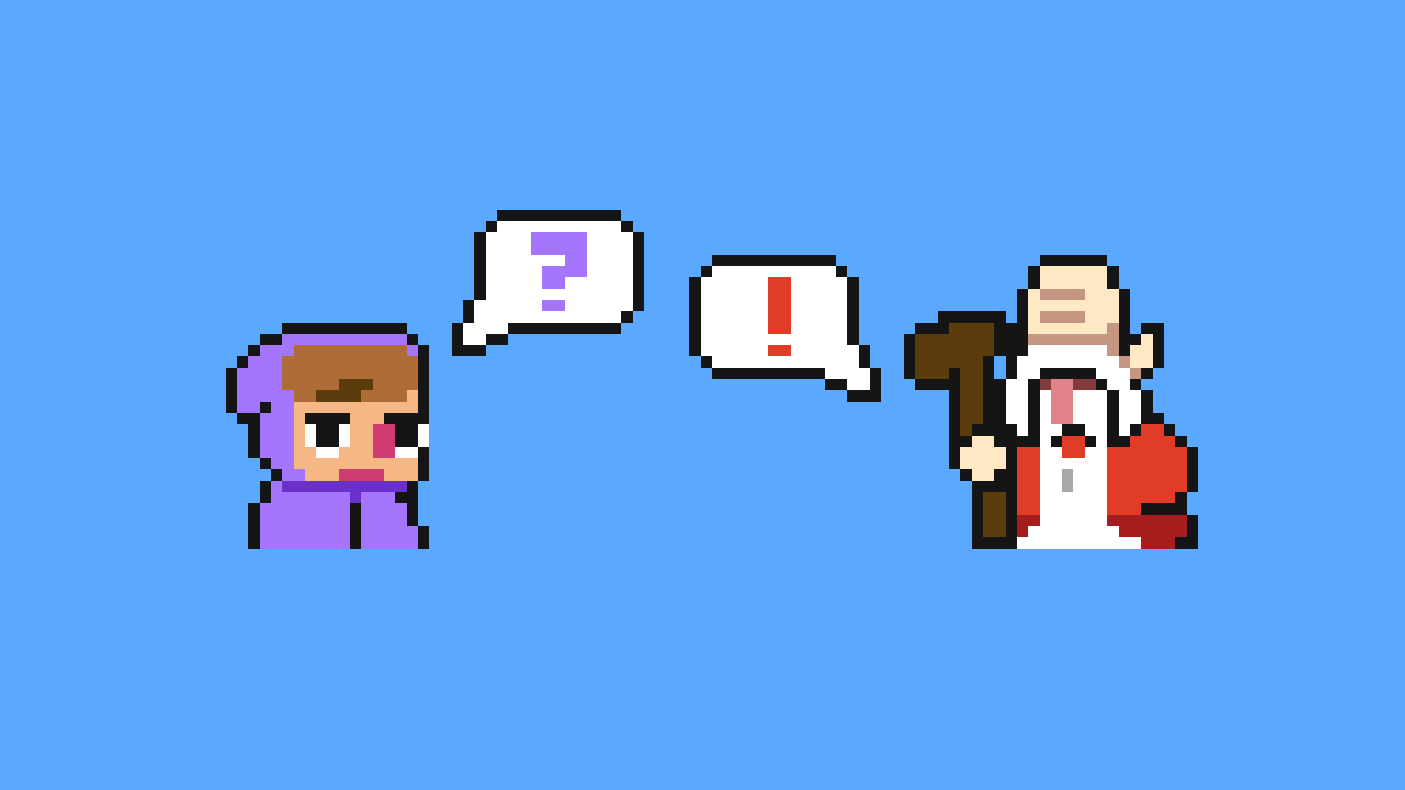
Getting GameMaker Help in Discord can be a game-changer when you’re stuck on a problem, but knowing how to ask the right way makes all the difference. Whether you’re troubleshooting a stubborn bug, figuring out how to improve your code, or just looking for advice, asking clear and well-structured questions will get you better answers, faster. In this post, we’ll go over some key tips to help you communicate effectively, give the right details, and increase your chances of getting useful responses from the GameMaker community.
An Expert Opinion
If you’ve spent some time in the Forums or on the Discord Server, you’re familiar with Mimpy. He’s a game developer, a GM Discord helper, and an all-around great person. He spends an extraordinary amount of time helping people in the community and he’s gotten really good at it. We asked him how to get better GameMaker help in Discord, and here’s what he had to say:
The most important thing about receiving help is explaining the circumstances about your problem. There’s three things that absolutely must be addressed for every single problem: where the problem occurs, what is supposed to happen, and what currently happens instead. All too often a user will neglect all three of these things and post a screenshot of an error with no explanation, with the caption “how do I get rid of this” or something, haha!
You can think of a code error like a crime scene, and you’re a detective trying to solve the mystery of what’s going wrong. What’s the first thing a detective will do? Investigate and gather as many clues as they can. A lot of the time a helper will ask way more questions than the person being helped, since they need to obtain a good enough understanding of the code involved to figure out what to do. When asking for help, it’s a good idea to include as much of the code that you think is related to the issue as you can, as well as explaining the object throwing the error and what that object’s job is in the game itself.
Equally important is knowing what the actual objective is. As much as we’d like to be, a helper is not a mind reader, and they aren’t able to figure out what someone wants without being told what that is. When it comes to games that crash and throw an error message the objective is usually obvious- getting rid of the crash, of course- but it’s not always so cut and dry. I once had someone message me with a gif of a character swinging a sword, with the question “how do I fix this,” and it took ten minutes of questioning before I found out that the sword was swinging too fast. So, in order to get the best help possible, be clear and specific, state exactly what you want to happen, as well as what the game currently does instead. Comparing what we want with what we have is important, since the difference between those two things is exactly what needs to be changed.
And finally, in order to get the best possible experience with being helped, make sure to put in a prior effort towards solving the problem yourself before asking. Even if you make things worse, there’s always the undo button, so there’s no reason to be afraid of trying whatever you can think of to fix the problem. Plus, even if you don’t realize it, and even if you don’t come up with a solution, trying to fix your mistakes gives you a better understanding of what those mistakes are. This means that when you receive help from someone else and they tell you what’s wrong, it’s likely that things will “click” better for you, and you’ll fully understand what happened. Which, of course, means you’re less likely to make that same mistake again in the future. It’s a long-term benefit!
To summarize:
- Give Key Context
- Clearly state where the problem occurs.
- Explain what is supposed to happen.
- Describe what actually happens instead.
- Avoid just posting an error message or a vague question—give details!
- Think Like a Detective
- A helper needs clues—share as much relevant code as possible.
- Explain which object is involved and its role in your game.
- Expect follow-up questions and be ready to clarify.
- Be Clear About Your Goal
- Helpers can’t read minds—state exactly what you want to achieve.
- Compare the expected outcome to the actual outcome.
- The fix is the difference between those two outcomes.
- Try to Solve It First
- Experiment before asking—it helps you understand the problem better.
- Even failed attempts teach you something and make helper advice “click” more.
- The more you learn from mistakes, the less likely you are to repeat them!
Wrap Up
Remember that helpers in the GameMaker Discord are there because they’re interested in helping. They aren’t getting paid, and they’re under no obligation to help. They’re there because they want to be! Let’s do our best to remove some of the friction when looking for help ourselves. Be patient with the issues, be grateful for their time, and pay it forward. One day, you can help someone with a problem that you’ve already solved!
Useful Links
Thank you, Mimpy, for your time and expertise.
